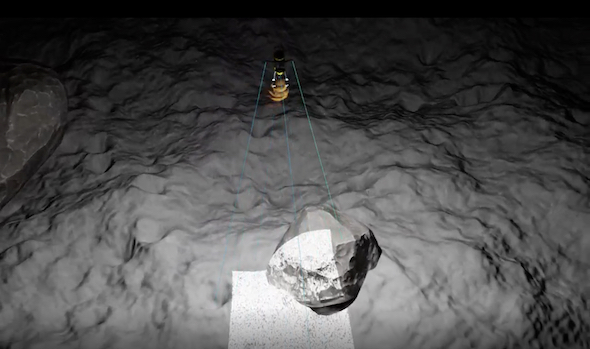MoonFALL
PI: Zachary Gaines, Michael Pham (Co-I), Cal Poly Pomona Bronco Space Club
PI: Zachary Gaines, Michael Pham (Co-I), Cal Poly Pomona Bronco Space Club

- NA
Low lighting and steep topography create ice-bearing regions on the Moon, creating difficult environments for landing in these scientifically interesting regions.
The MoonFALL technology could enable landings in shadowed and dark regions without the need for any previous knowledge of the target landing site. The technology is significantly smaller and lighter than existing systems while still providing high-resolution accuracy. The system leverages the advantages of low light conditions to create real-time maps that allow for future exploration of challenging lunar terrain. The combination of a reflective grid map and light detection and ranging (lidar) advances traditional terrain mapping technologies to allow for safe descents in particularly hazardous terrain.
Flight tests are expected to provide the relevant environment in which to validate a technology that is traditionally difficult to verify. During a nighttime suborbital test flight that simulates a lunar descent, the researchers expect to generate a three-dimensional map of a lunar surface test field in real-time from an altitude of at least 250 meters. Data generated by the flight tests are expected to allow the researchers to further refine the technology and move closer to its application.
• NASA or commercial space exploration missions
• Commercial lunar service providers
• Landing systems required to operate in dark environments
Technology Details
-
Selection DateTechLeap22
-
Program StatusActive
- 0 sRLV
Development Team
-
PIZachary Gaines
-
PI OrganizationCal Poly Pomona Bronco Space Club
-
Co-IMichael Pham
-
Co-I OrganizationCal Poly Pomona Bronco Space Club
-
Sponsor

